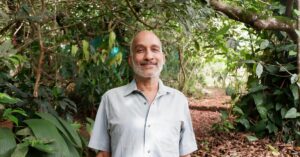This Pune Organization Converts Plastic Waste into Poly-Fuel with No Damage to the Environment
Plastic bags, PET bottles, food wrappers, and more – how do you get rid of the enormous quantity of plastic waste continuously collecting in your home? One Pune organization has the answer – it converts plastic waste into useful poly-fuel. Here’s how.
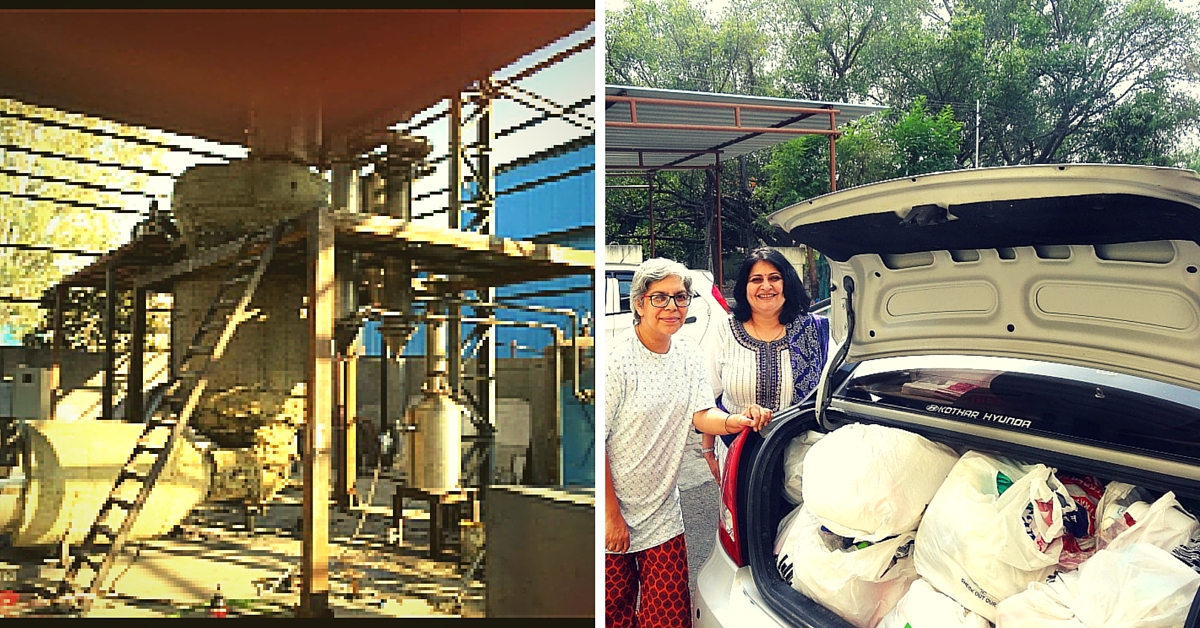
Plastic bags, PET bottles, food wrappers, and more – how do you get rid of the enormous quantity of plastic waste continuously collecting in your home? One Pune organization has the answer – it converts plastic waste into useful poly-fuel. Here’s how.
“Plastic has taken over my life. I dream about plastic,” says 48-year-old Medha Tadpatrikar, the founder of Rudra Environmental Solutions – a Pune-based organization that has two plants to convert plastic waste into poly-fuel. “And the best part is that once people start collecting plastic waste for us to convert, they tell me they begin to see it everywhere. There was a time they didn’t even realise how much plastic they discarded on a daily basis. Now they see plastic waste on the streets and think about its ill-effects – they experience a change,” she adds.
Medha and her team have designed, developed and manufactured the machines in Rudra’s plants. The machines produce poly-fuel utilising the process of Pyrolysis, that is, the decomposition of condensed substances by heating.
They collect plastic waste, such as bottles, bags, food pouches, wrappers, cable covers, etc., from different houses around the city once every fortnight, and recycle it into fuel, gas and sludge.
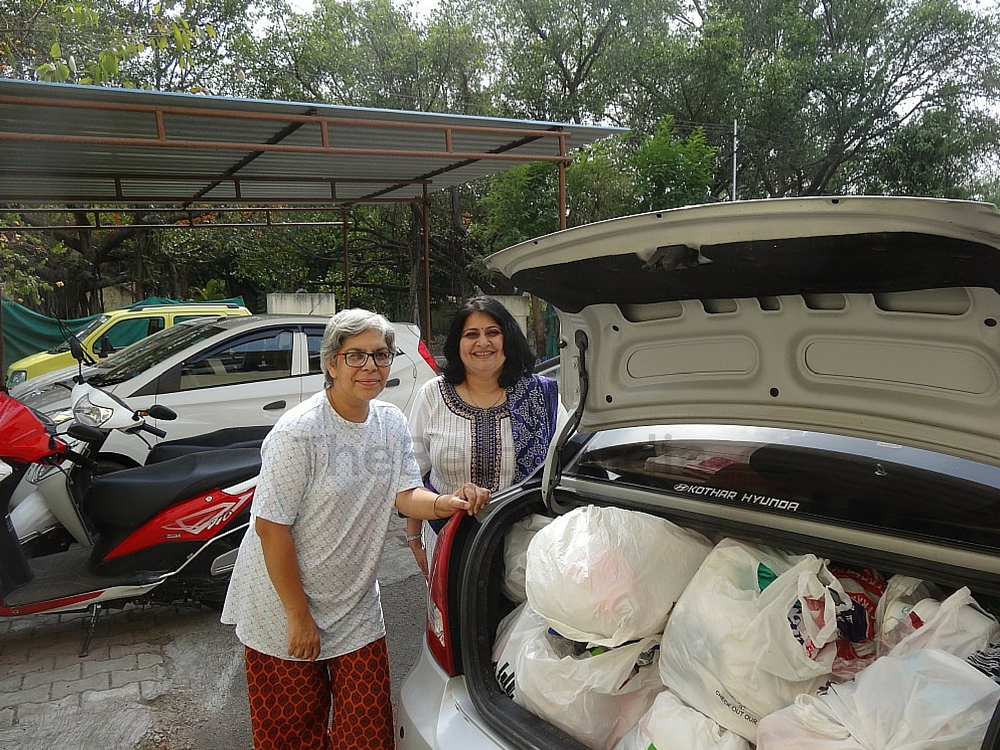
It all started in 2009 when Medha and Shirish N. Phadtare, the co-founder of Rudra, visited Thane in Maharashtra. They saw the carcasses of a couple of deer that had lost their lives after eating plastic bags.
You May Also Like: Their Food Was Killing Them. So These Vultures Got Their Own Restaurant!
“It was really heartbreaking to see that defenceless animals had died just because of some litter that we unthinkingly threw away. We came back home thinking something should be done about the situation. But it was only after a few months that we thought: Why don’t we do something? Why should we always wait for someone else to take the initiative?” asks Medha.
The duo began thinking of ways in which plastic bags could be recycled, literally beginning with putting them in a pressure cooker to see what happened. Since their backgrounds were in law and marketing, they had no technical knowledge about this field.
Their learning had to start from scratch. Some of their friends joined in and finally, in 2010, they had a running machine.

“Plastic is basically made from crude oil. So we thought of reversing the process and obtaining fuel from it,” says Medha. After using the first machine for some time they realised that it was releasing harmful gasses. So they went back to the design table worked on refining the design for two years. The team then came up with a second model that used the gasses being released to fire up the machine. In 2014, they manufactured a third and improved model, which they currently use.
“By the end of 2014, we realised that while we had developed a solution it was of no use if people did not develop awareness about the harmful effects of plastic and use it. So we started by spreading awareness but realized that people were not interested in hearing about the problem – they wanted a solution,” says Medha.
Her team started to hand out recycled plastic bags to people, asking them to place household plastic waste in the bags, which they would collect at regular intervals. Their small effort has grown to a point now where the team collects 5-6 tons of plastic waste from 5,500 houses in Pune in a month!
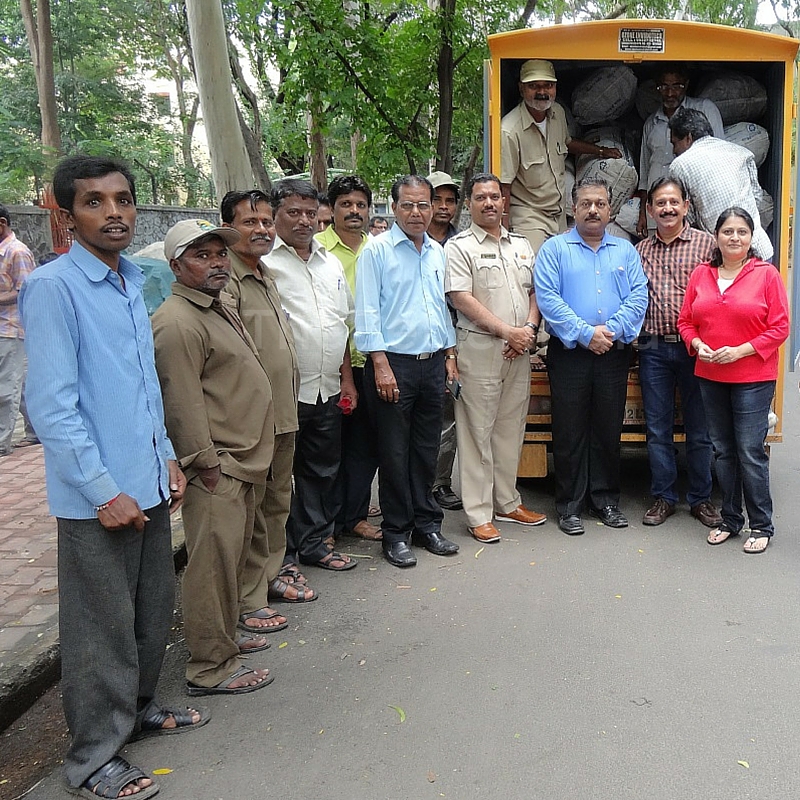
The collected waste is first dumped into the reactor, which is a closed anaerobic system – meaning it does not use oxygen. A catalyst in added into the reactor and the plastic is heated. At around 150 degrees Celsius, the machine starts emitting gasses like methane, propane, etc. These gasses are captured and used as the source for the next heating cycle of the machine. The remaining gasses in the reactor are then condensed and fuel is released. For every 100 kg of plastic, 45-65 litres of fuel are generated. Twenty percent of the input is converted into gas, leaving behind water and sludge. The sludge is rich in polymer and can be reused with bitumen to make roads. The team gives it to local builders who use it for the construction of internal roads within housing societies. In this way, 100% of the plastic waste is recycled with no emission and no harm to the environment.
You May Also Like: How a Farm in Dharamsala Can Help us Replace Plastic Bags with Eco Friendly Cow Dung Planters
The poly-fuel is a mixture of diesel, petrol and kerosene, with very high calorific value. It can be used in boilers, furnaces, stoves, in agricultural firms, etc.
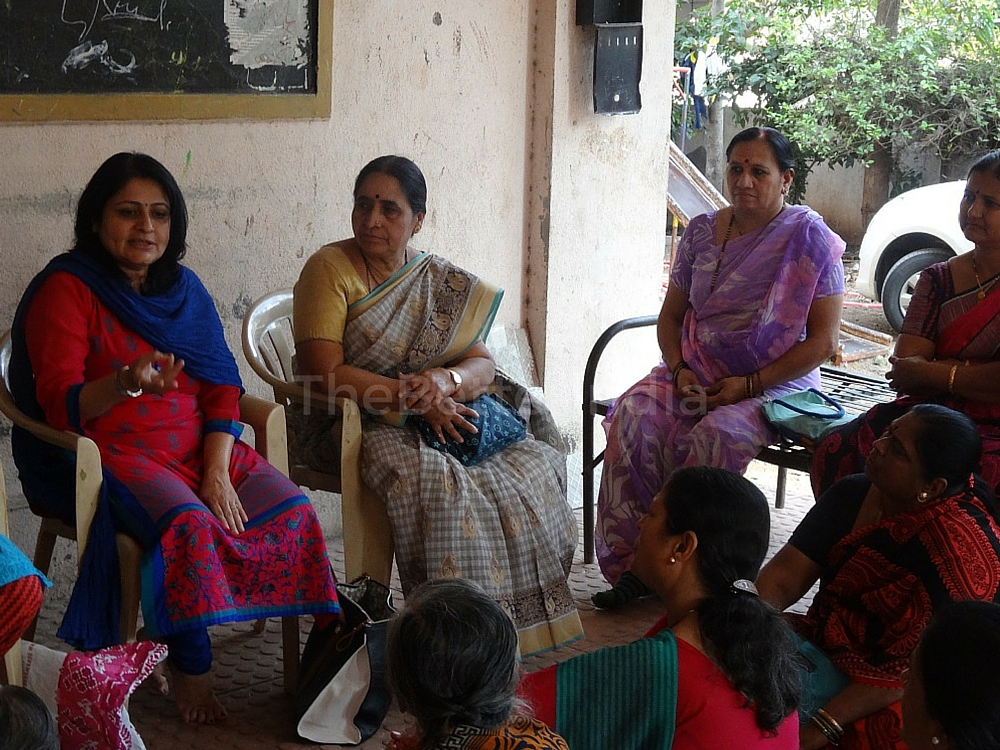
“If you go around the villages in the Pune area, you will find the residents don’t use kerosene because they can’t afford it. So they use wood or burn plastic, which in turn affects the environment. We connect with women in these villages and sell the fuel to them at reasonable prices. As the calorific value of the fuel is very high, it lasts longer and is useful for them,” says Medha.
“I think our biggest achievement is that people have started thinking about plastic now. A 69-year-old man from an area where we don’t go for collection came to our plant one day to hand over the plastic waste he had collected. He pledged that he will collect plastic equivalent to his weight in the next three months. Then there are some women who courier their plastic waste to us from Mumbai. It’s a small start, but this work had to start somewhere,” she concludes.
For Pune residents who don’t want plastic waste generated from their homes and offices to end up in landfills, this is an amazing solution.
You May Also Like: This Software Can Help Anyone Construct Eco-Friendly Homes, Offices, Hotels and More
You can contact Medha by writing to her at: [email protected]
Like this story? Have something to share? Email: [email protected], or join us on Facebook and Twitter (@thebetterindia). To get positive news on WhatsApp, just send ‘Start’ to 090 2900 3600 via WhatsApp.
This story made me
- 97
- 121
- 89
- 167
Tell Us More
We bring stories straight from the heart of India, to inspire millions and create a wave of impact. Our positive movement is growing bigger everyday, and we would love for you to join it.
Please contribute whatever you can, every little penny helps our team in bringing you more stories that support dreams and spread hope.






